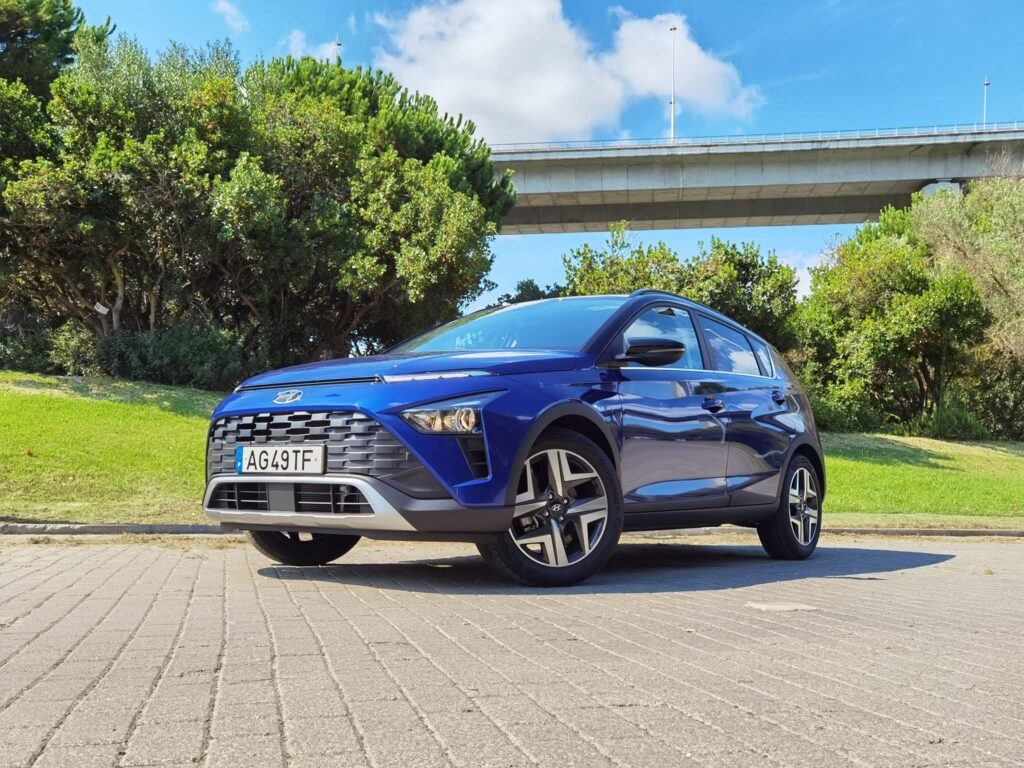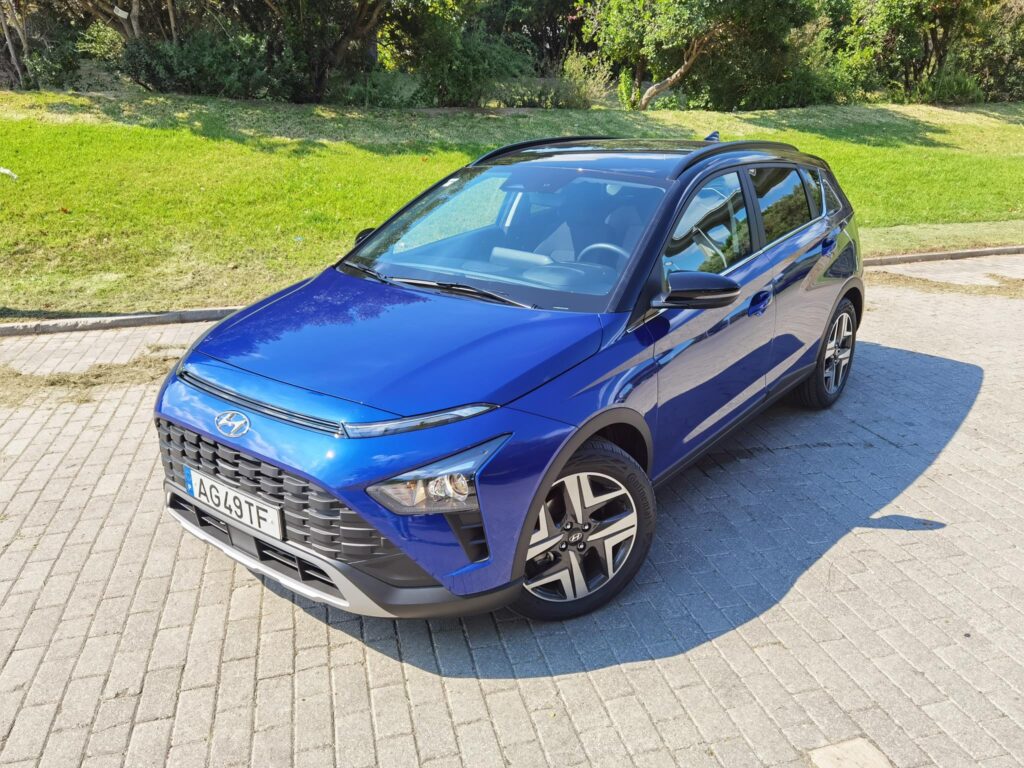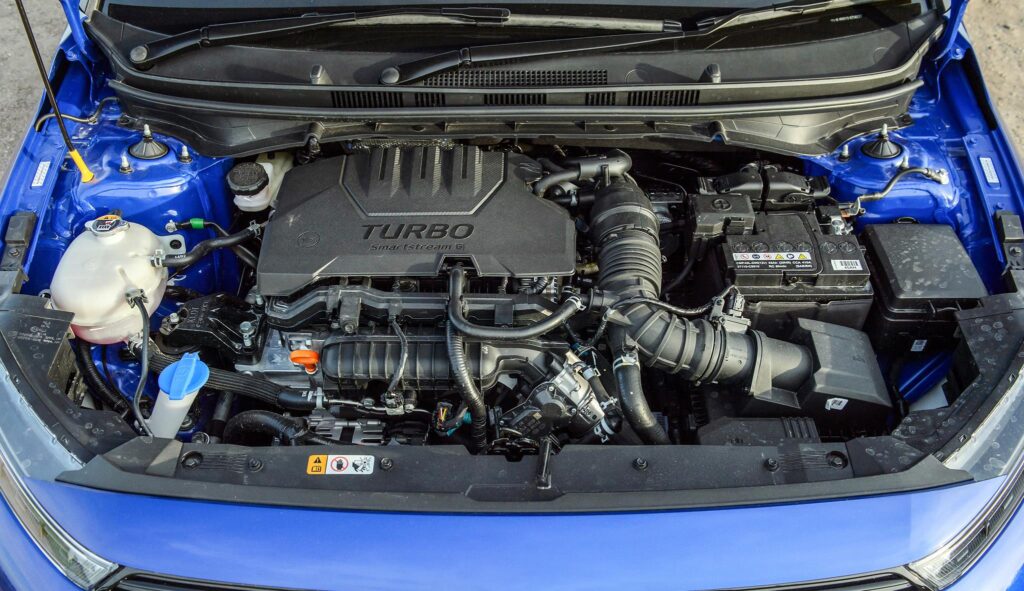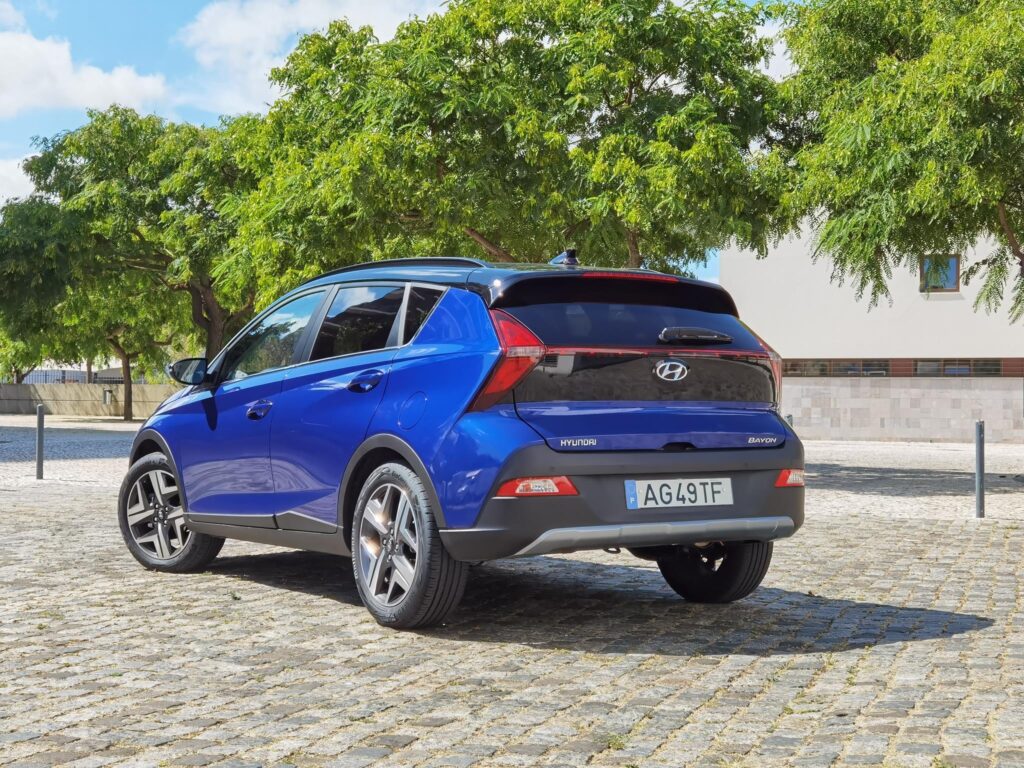
With a very strong product offensive, the Hyundai/Kia group continues to maintain a high pace of new products on the market. Here we have our first contact with yet another competitor for the overcrowded B-SUV segment, the Hyundai Bayon. Based on the new generation of the i20, the Bayon relinquishes the more “rugged” look of Kauai, without the bulkier look and without the additional ground clearance .
Thus, the Hyundai Bayon receives a specific bodywork, with its own design, which seems less consensual than the i20. With a very angular rear, the Bayon also receives some Kauai references such as LED daytime running lights.
Hyundai’s new model has competitors like the SEAT Arona or the Ford Puma , to name just a few. Although in the same segment, some B-SUVs continue to compete more with the Kauai, which is slightly larger, but does not offer more space. However, the main difference does not lie in the dimensions, but in the form. While the Hyundai Kauai sports a more “adventurous” and dynamic look, the Bayon takes on a more urban and somewhat “familiar” role. Confirming this is the superior capacity of the luggage compartment compared to its brother. When compared to other offers in the segment, it just lacks some versatility.

The other difference is in the offer of engines. The Hyundai Kauai offers three options, petrol, diesel and even 100% electric, while the Bayon is only available with a 1.0 T-GDI petrol engine.
Hyundai i20 provides the base, but there are specific changes
Space quotas were one of the concerns of Hyundai technicians, given that the Bayon presents an effective increase in space not only offered to the occupants, but also in the reinforced trunk for 410 liters of capacity . The two rear passengers therefore have more legroom and headroom and additionally have USB connections.
Still inside, the Hyundai Bayon receives, unsurprisingly, the same cabin as the i20 . Composed of entirely hard materials, but with a correct assembly. We have storage spaces in the doors as well as in the armrest. The smartphone can be placed in a compartment in front of the gearbox. The driving position has several adjustments, although the seats feel a little spongy.
The infotainment has wireless Apple Carplay and Android Auto, the operation is simple and the 8″ screen is good. The instrument panel also uses a screen that allows you to choose between different themes without losing access to the on-board computer functions. Automatic climate control has controls segregated from the infotainment, which we welcome. On the other hand, it lacks some color and life in the interior, as we find in the Kauai brother that offers color packs that assign color to various interior items such as console surfaces or seat belts.
More technology, a new look and a revised engine… you don’t need to change the “formula” to remain one of the favourites.
Read more
One engine and one level of equipment
Available in Portugal only in the Premium version , and without any option other than metallic paint, the Hyundai Bayon has a very complete list of equipment, which includes a rear camera, alarm, Apple Carplay and Android Auto connections and cruise-control. However, automatic AC, tinted rear windows and driving aids are also part of the standard equipment of this version. Indeed, these include emergency braking and the lane keeping system.
The only engine available for the Hyundai Bayon is our well-known 100hp 1.0 T-GDi, a three-cylinder turbocharged gasoline engine that delivers 100hp of power and 172Nm of torque. It was also with this engine that we tested the Hyundai i20 . However, on this occasion we have the 7DCT automatic gearbox, with dual clutch, optional for around €1600.

DCT box adds comfort
The seven-speed DCT automatic transmission proved to be an excellent ally in the city, providing greater comfort of use . Smooth in passages as well as fast qb, it is correctly adapted to this engine. However, the reductions could be faster while showing some tendency not to anticipate reductions on descents, placing the Bayon too loose. There is a tuning more suitable for the comfort of use and peaceful use. Still, when goaded, the Bayon is dispatched with the little three-cylinder making itself heard with a
The 100 hp of the 1.0 T-GDI in the Hyundai Bayon allows correct speeds outside the city despite the reduced torque, with the turbo providing a crucial help. During the kilometers that we carry out averages of around 6 l/100 km, and this engine continues to be a little wasteful in traffic. Still in the city we find one of the virtues of Bayon, comfort. The 17″ wheels, which fit perfectly for this B-SUV and some changes to the suspension, make it a comfortable city car, even in bad areas. Despite the harder materials inside, the Bayon reveals robustness.
The Hyundai Bayon has a price in Portugal of €21,800 in the 1.0 T-GDi Premium version and the only option is metallic paint, €430, and the 7DCT automatic transmission (€1,600). With the funding campaign running, the price drops to €20,300. A value that proves to be framed in the segment given the complete endowment of standard equipment.

Conclusion
With a strong product offensive underway, the Hyundai Bayon is yet another part of the Korean manufacturer’s SUV range. With a less distinctive look than the Kauai, it leverages many of the i20’s qualities to reinforce familiar attributes such as space and comfort. To these adds a complete list of standard equipment and, in this case, an automatic box that, together with the 1.0 engine, allows for good progress and moderate consumption.